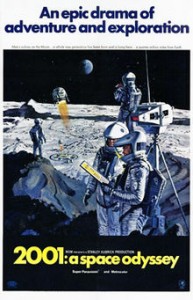Jonathan Haidt: What the Tea Partiers really want is karma
Jonathan Haidt is convinced he understands the thing that spurs on Tea Partiers: karma. He argued his position in an October 16, 2010 article appearing in the Wall Street Journal. Haidt based his conclusion on various surveys designed to tease out the differences and similarities among different types of voters. Those surveys show that American voters across the board love “liberty.” This is a problem for progressives because it doesn't distinguish them from Tea Partiers. We struggle to distinguish Tea Partiers in other ways, then, claiming that they are more racist, greedier or more gullible. Jonathan Haidt is not convinced.
[Karma is] the Sanskrit word for deed or action, and the law of karma says that for every action, there is an equal and morally commensurate reaction. Kindness, honesty and hard work will (eventually) bring good fortune; cruelty, deceit and laziness will (eventually) bring suffering. No divine intervention is required; it's just a law of the universe, like gravity.The idea of karma comports with a common human desire that moral bank accounts should be balanced. In the eyes of Tea Partiers, this desire to see a balancing of moral bank accounts is sharply frustrated by government policies that allow bad deeds (e.g., the failure to work hard) to go unpunished. The main problem is that social safety nets get in the way of karma. In the language of evolutionary psychology, Tea Partiers have highly sensitive cheater detectors. They believe that most welfare programs reduce incentives for working getting married, especially among the poor. Another example raised by Haidt is that birth control and abortion separate "irresponsible" sex from its natural consequences (babies). Another example concerns liberal approaches to criminal justice, which allow too many criminals to get away with crime. [caption id="attachment_15561" align="alignright" width="300" caption="Image by edayi at dreamstime.com (with permission)"]
 [/caption]
Tea Partiers "want to live in a country in which hard work and personal responsibility payoff and laziness, cheating and irresponsibility bring people to ruin.” Haidt contrasts Tea Partiers to liberals, who don't like the idea of karma, because it allows "differences in talent and effort to result in unequal outcomes.”
Haidt also points out a fault line that underlies conservative politics. Tea Partiers starkly part ways with libertarian and pro-business conservatives, such as those run by Dick Armey, who support bailouts of big banks.
"Now jump ahead to today's ongoing financial and economic crisis. Those guilty of corruption and irresponsibility have escaped the consequences of their wrongdoing, rescued first by President Bush and then by President. Obama. Bailouts and bonuses sent unimaginable sums of the taxpayers money to the very people who brought calamity upon the rest of us where is punishment for the wicked?"
Further complicating things, Libertarians and pro-business types are more similar to liberals than to Tea Partiers on the three "binding foundations" (of Haidt's five foundations of morality): group loyalty, respect for authority and spiritual sanctity. And see here for more on Haidt's five moral foundations.
Haidt did not discuss social Darwinism in his article, but it seems to be the elephant in the room. It's one thing to say in the abstract (as Tea Partiers say) that we need to let the chips fall where they might, but what do you do about the tragedies? Nothing? Tea Partiers tend to be evasive about what they should do about homeless people and sick people who don’t have insurance. Tea Party rhetoric suggests (wrong-headedly in my opinion) that everything always comes out for the best in the end, without intervention of government. Everything will be as it should thanks to free market fundamentalism. That is what we are hearing from a mostly older bunch of folks who are happily benefitting from social security and Medicare while ranting about government programs.
I think that Jonathan Haidt has made a good point regarding Tea Party pursuit of karma, but I think that the full picture also requires the recognition of Tea Party hard-heartedness and hypocrisy.
[/caption]
Tea Partiers "want to live in a country in which hard work and personal responsibility payoff and laziness, cheating and irresponsibility bring people to ruin.” Haidt contrasts Tea Partiers to liberals, who don't like the idea of karma, because it allows "differences in talent and effort to result in unequal outcomes.”
Haidt also points out a fault line that underlies conservative politics. Tea Partiers starkly part ways with libertarian and pro-business conservatives, such as those run by Dick Armey, who support bailouts of big banks.
"Now jump ahead to today's ongoing financial and economic crisis. Those guilty of corruption and irresponsibility have escaped the consequences of their wrongdoing, rescued first by President Bush and then by President. Obama. Bailouts and bonuses sent unimaginable sums of the taxpayers money to the very people who brought calamity upon the rest of us where is punishment for the wicked?"
Further complicating things, Libertarians and pro-business types are more similar to liberals than to Tea Partiers on the three "binding foundations" (of Haidt's five foundations of morality): group loyalty, respect for authority and spiritual sanctity. And see here for more on Haidt's five moral foundations.
Haidt did not discuss social Darwinism in his article, but it seems to be the elephant in the room. It's one thing to say in the abstract (as Tea Partiers say) that we need to let the chips fall where they might, but what do you do about the tragedies? Nothing? Tea Partiers tend to be evasive about what they should do about homeless people and sick people who don’t have insurance. Tea Party rhetoric suggests (wrong-headedly in my opinion) that everything always comes out for the best in the end, without intervention of government. Everything will be as it should thanks to free market fundamentalism. That is what we are hearing from a mostly older bunch of folks who are happily benefitting from social security and Medicare while ranting about government programs.
I think that Jonathan Haidt has made a good point regarding Tea Party pursuit of karma, but I think that the full picture also requires the recognition of Tea Party hard-heartedness and hypocrisy.


